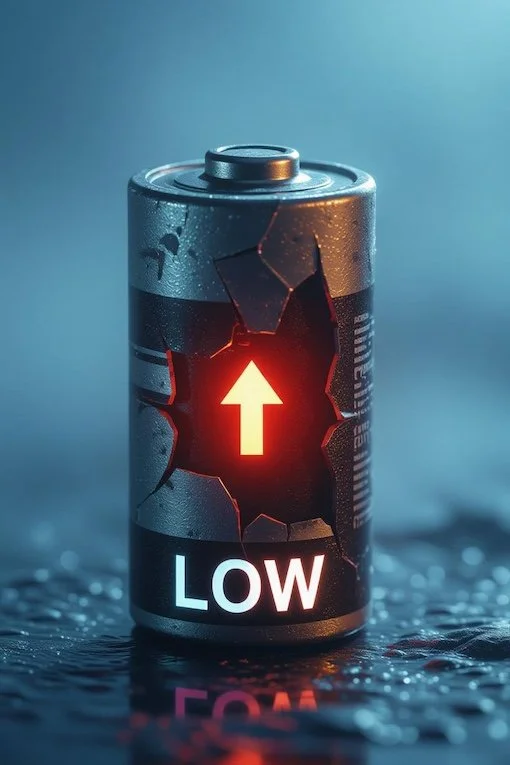Embrace the Body & Mind Connection When Healing Trauma
In a world of quick fixes, could the key to lasting trauma recovery lie in the slow, interconnected relationship of body and mind?
Unresolved trauma might be silently draining your energy. But what if a dualistic approach could help unlock exponential healing?
In the journey of recovery, establishing a strong foundation between the body and mind isn't just important—it acts as a catalyst for transforming from a state of mere survival into one of thriving.
From fatigue to fragmented memories, unresolved trauma erodes our resources—yet with movement, nutrition, psychedelic therapy, and mindful integration, we can rebuild exponentially.
Amid the chaos of modern life, where stress compounds old wounds, discovering the body-mind connection could be your roadmap to resilience and psychedelic-enhanced insights.
A rock-solid foundation for resolving trauma.
From my personal experience and many others, I would say this is an undercommunicated message, especially to individuals who have PTSD and suffer from unresolved trauma. Many spend years or decades stumbling in the dark for answers, and some individuals never find them.
The typical mindset within Western medicine focuses on treating symptoms rather than working on root causes and fundamentals. Often, this information is completely missing from medical personnel, and many individuals have had to find the answers on their own. Fundamentally, this is rooted in a system that incentivizes repeating business over the well-being of the individual.
In the long run, this is unsustainable, and we need to adopt a dualistic approach, with two key considerations in mind. The body and the mind are in an interconnected relationship and must be approached in that way to achieve lasting results successfully.
Metaphorically, I want you to think of this as the foundation wall of a house. We aim to establish a solid foundation, ideally as soon as possible, in the process of resolving trauma. Our goal is to lay down as many solid building blocks as possible into our foundation early in the process. The stronger the foundation, the more your conditions will improve, breaking down triggers and resolving trauma. It also increases your resiliency and helps minimize the risk of setbacks on your health journey.
The connection between fatigue and unresolved trauma.
The pattern linking PTSD, complex PTSD (C-PTSD), and fatigue is well-documented. Both conditions often stem from traumatic experiences—PTSD typically from a single event and C-PTSD from prolonged or repeated trauma (e.g., childhood abuse)—and they share overlapping mechanisms that contribute to chronic fatigue.
Stress Hormone Dysregulation and Adrenal Overload: In both PTSD and C-PTSD, the body's fight-or-flight response remains chronically activated, overloading the adrenal glands and hypothalamic-pituitary-adrenal (HPA) axis. This results in elevated cortisol levels initially, but over time, it leads to adrenal fatigue, reduced serotonin levels, and persistent fatigue.
Hypervigilance and Sleep Disturbances: Constant alertness to potential threats disrupts sleep patterns, leading to insomnia, nightmares, or fragmented rest, which in turn compounds daytime fatigue. All of these factors are particularly pronounced in C-PTSD, where emotional exhaustion from difficulty regulating emotions adds to the cycle.
Neurotransmitter Depletion: Trauma reduces levels of mood-stabilizing chemicals like serotonin and dopamine, contributing to both physical tiredness and emotional meltdown risks.
The basic building blocks: Movement, breathing, a healthy diet, and sleep.
What I've learned from my own journey is that getting the basic building blocks is essential for your recovery.
Activity and movement have to be proportionally adjusted based on your body's available resources and energy levels. For years, I used to compensate for my lack of energy with energy drinks. Methaphorically, I like to think of this added energy as using a credit card to pay the bills. Eventually, the balance has to be paid in full. But how are we supposed to pay that balance off when our balance is negative?
The energy we naturally produce without supplementation is our baseline, and I strongly advise focusing on building your baseline instead of falling for the temptation of using your credit card in terms of energy.
If you are currently experiencing fatigue, I recommend avoiding intense workouts and instead focusing on low-intensity yoga classes and walks tailored to your level of fatigue. Natural sunlight in the morning helps regulate our sleep-wake cycles. Red light therapy can help compensate for the lack of natural sunlight, especially during the winter months.
Practicing meditation can be a real challenge when you are suffering from fatigue, but it is a low-hanging fruit to help ground yourself. Set the bar low at the beginning by meditating for 10 minutes. You can find both guided and non-guided meditation music on YouTube.
Maintaining a healthy diet can feel very overwhelming when dealing with fatigue, especially if you are in the "wired & tired" or "crashed" stage. I have provided specific suggestions for more detailed articles on the subject in the subheading. However, I recommend approaching this with a KISS mindset —Keep It Stupid Simple — until you've managed to recover your energy to some extent. Remember to celebrate the small wins along your journey.
When it comes to sleep, the most essential element is to aim for 7 to 9 hours of sleep each night. Recovering from fatigue can make it difficult to get uninterrupted sleep, which is entirely natural, even though it can be very frustrating. Maintaining a consistent sleep schedule by going to bed and waking up at the same time every day, including weekends, is crucial for helping your body recover.
Whole Foods & Nutrition.
The real game-changer in my life was when I started working dually on my diet and my psyche, beginning to reap the benefits of the interconnected relationship. The correlation and spillover effect are severely underrated.
For the last 10 months, my focus has been solely on consuming whole foods to help restore balance to my cortisol and blood sugar levels.
The key takeaways from this period have been to work with a Nutritional therapist. Within alternative medicine, various testing methods are employed that differ from those commonly used in traditional Western medicine. I recommend that everyone experiencing fatigue have a hair mineral analysis performed. The next step is to tailor your diet and nutrition to supplement the missing values.
You can find more information about the diet I've used here.
You can find more of my articles about adrenal fatigue in the links below.
Mastery of releasing trauma: Exponential to the biochemistry of the body.
The impact of a solid foundation comes to light, and the effect is massive when it comes to mastering trauma release with psychedelic therapy. Especially when it comes to maneuvering the destabilization and the integration process, but also when going through the psychedelic experience itself.
There is an exponential curve and correlation between the levels of biochemistry and the level of mastery in releasing trauma.
Biochemistry refers to the following elements:
Macronutrients: Proteins, carbohydrates & fats.
Carbohydrates: Glucose & fiber.
Micronutrients: Vitamins & mineral levels.
Water & Electrolytes: Sodium & potassium levels.
In summary, nutritional values are the inputs that drive and modulate body biochemistry, creating a symbiotic loop where diet shapes chemical efficiency, and biochemistry dictates nutritional demands. A balanced, varied diet optimizes this relationship, preventing disorders and enhancing resilience.
When our bodies are depleted of resources, we become extra vulnerable. Approaching psychedelic therapy in a state of heavy fatigue might force us to face our most heavy trauma and emotions, which otherwise would be nearly unapproachable. We might also run the risk of destabilizing the psyche to an extent not recommended, with retraumatization as an elevated risk.
The risk and rewards has to be given serious consideration. As a general rule of thumb, when working with psychedelics, we should always embrace a mindset where our priority is always to avoid doing harm. When this rule of thumb is fulfilled, we can focus on doing good.
Balance, and its influence on "set & setting".
A balanced body—referring to physical, biochemical, and energetic equilibrium through factors like nutrition, nervous system regulation, sleep, and movement—plays a crucial role in enhancing the efficacy, safety, and outcomes of psychedelic therapy. In psychedelic contexts, "set" refers to the individual's mindset, emotional state, and intentions, while "setting" encompasses the external environment, including social support, ambiance, and sensory elements.
Nervous system regulation:
Promotes parasympathetic dominance (rest-and-digest mode), reducing anxiety and hypervigilance, which fosters a positive, open mindset. This minimizes fear-based distortions during the trip.
Enhances environmental attunement, making the space feel safer and more supportive, as a calm body amplifies trust in the psychedelic guide or music being used.
Biochemical & hormonal balance:
Supports serotonin and dopamine pathways, aligning with psychedelics' effects to create emotional stability and clarity of intent.
Improves sensory integration, making elements like lighting or sounds more harmonious rather than overwhelming.
Energetic & Somatic coherence:
Builds internal "coherence" (aligned mind-body energy), expanding awareness capacity, and reducing resistance to insights.
Heightens presence, turning the setting into a co-creative space for healing rather than a potential trigger.
Risk mitigation & integration:
Strengthens resilience against psychological distress, ensuring the mindset remains grounded post-experience.
Facilitates smoother environmental transitions, such as from session to daily life, thereby reducing disorientation.
Play the long game.
I can't stress this enough, but working with trauma has to be embraced with a long-game mindset. The complexity is obviously a determining factor and will define how much effort is required to overcome your traumas. However, don't let the complexity discourage you. You are being courageous, facing your deepest fears and traumas.
Being patient and playing the long game will ultimately pay off.
Methaphorically, I like to think of it as building a home. The more we invest in our own bodies and psyche, the more cozy and enjoyable our home becomes.
-
https://www.ptsduk.org/why-does-post-traumatic-stress-disorder-makes-you-so-tired/
https://www.nemahealth.com/blog-posts/why-is-ptsd-so-exhausting
https://relevancerecovery.com/what-are-the-17-symptoms-of-complex-ptsd/
https://www.cptsdeducation.com/blog/emotional-exhaustion-cptsd
https://cornercanyonhc.com/blog/what-is-ptsd-fatigue-and-how-to-get-over-it/
https://www.frontiersin.org/journals/pharmacology/articles/10.3389/fphar.2021.619890/full
https://pmc.ncbi.nlm.nih.gov/articles/PMC8033606/
https://pubs.acs.org/doi/10.1021/acsptsci.0c00187
https://pubmed.ncbi.nlm.nih.gov/35138585/
https://www.frontiersin.org/journals/psychology/articles/10.3389/fpsyg.2022.887255/full
https://my.clevelandclinic.org/health/symptoms/21206-fatigue
https://medresearch.umich.edu/research-news/what-do-if-you-wake-tired-every-day
https://www.betterhealth.vic.gov.au/health/conditionsandtreatments/fatigue-fighting-tips
https://www.parkview.com/blog/what-to-do-when-tiredness-wont-go-away
https://www.health.harvard.edu/topics/energy-and-fatigue
https://www.parkview.com/blog/what-to-do-when-tiredness-wont-go-away



